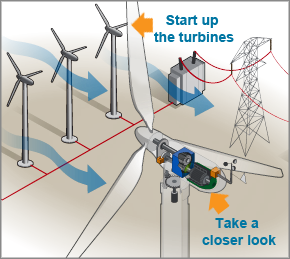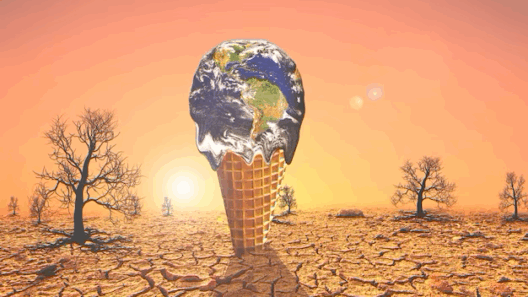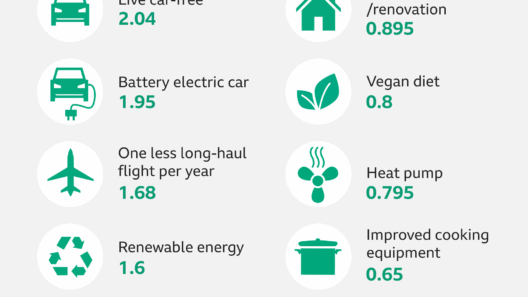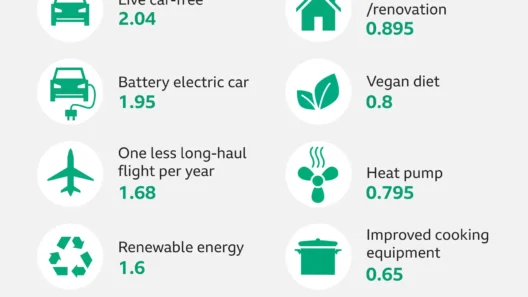Global warming is an intricate challenge that we face in the contemporary world. It encompasses an ensemble of phenomena, primarily linked to the increase in greenhouse gases, resulting in an elevated average temperature of the Earth. As the specter of climate change looms larger, it becomes imperative for individuals, communities, and nations to deliberate on actionable strategies that can curtail global warming. Herein lies a compilation of pragmatic steps that anyone can undertake. Each action, while seemingly minor in isolation, coalesces into a significant force capable of engendering change.
Adopting Sustainable Transportation Choices
Transportation is one of the foremost contributors to greenhouse gas emissions. When pondering prevention methods, reconsidering your mode of transport can yield notable benefits.
Opting for public transportation is a salient choice. Buses and trains generally emit fewer pollutants per capita than private vehicles. By embracing this communal mode of travel, we not only diminish our carbon footprint but also alleviate road congestion, leading to a cascading effect on air quality.
Moreover, carpooling can be a remarkable alternative, merging convenience with environmental stewardship. Engaging with neighbors or colleagues to arrange shared rides consolidates the number of vehicles on the road.
Walking and cycling are inherently sustainable choices that diminish reliance on fossil fuels. These methods not only aid in cutting emissions but also bolster personal health. Additionally, many urban environments are progressively developing infrastructure aimed at supporting such activities, such as bike lanes and pedestrian-friendly accesses, facilitating a seamless transition toward greener commuting habits.
Reducing Energy Consumption in Homes
Our habitats play a crucial role in global warming implications. Energy consumption patterns within households significantly influence the environment. There are abundant strategies to optimize energy use, minimizing unnecessary waste.
Implementing energy-efficient appliances can lead to a dramatic reduction in energy consumption. Look for the Energy Star label when purchasing household devices. These appliances are designed to use less energy without compromising performance.
Incorporating smart home technology provides another frontier for energy reduction. Smart thermostats, for instance, can learn your schedule and make adjustments accordingly, ensuring that energy is conserved during periods of absence.
Additionally, the simple act of using LED bulbs instead of traditional incandescent ones reduces energy consumption substantially. LEDs last longer and are substantially more efficient, translating into lower energy bills and less waste.
Insulation also plays an often-overlooked role in energy efficiency. Ensuring that your home is well-insulated helps to maintain desirable temperatures, which in turn diminishes the reliance on heating and cooling systems. Think about sealing drafts, insulating your attic, or investing in double-glazed windows for maximum effect.
Championing Waste Reduction and Recycling Practices
The accumulation of waste is a significant catalyst for environmental degradation. The volume of garbage we generate directly correlates with greenhouse gas emissions. Adopting a more sustainable approach to waste management can facilitate positive change.
Practicing the 3Rs—Reduce, Reuse, Recycle—serves as an invaluable framework for waste reduction. Start by minimizing consumption; purchase only what you genuinely need to prevent excess waste. The act of reusing materials, be it repurposing glass jars or donating clothing, extends the lifecycle of products, thereby diminishing demand for new items.
Recycling is where many individuals can make a profound impact. Familiarize yourself with local recycling guidelines, as these can vary significantly by region. Properly sorting materials—paper, plastics, glass, and metals—ensures that these products are processed correctly, diverting them from landfills where they may decompose and release methane, a potent greenhouse gas.
Composting organic waste is another avenue for reducing one’s ecological footprint. This natural process not only diverts waste from landfills but also enriches soil, decreasing the need for chemical fertilizers and diminishing the carbon emissions associated with their production.
Supporting Renewable Energy Initiatives
Transitioning to renewable energy sources stands as a cornerstone in the effort to combat global warming. Supporting initiatives such as solar, wind, and hydropower can catalyze systemic change, lessening dependence on fossil fuels.
If feasible, consider investing in solar panels for your home. Not only can this provide energy independence, but it also adds value to your property. Many regions offer incentives for solar adoption, making it an economically sound decision as well.
Additionally, advocating for legislation that promotes renewable energy projects is crucial. Engaging with local representatives, educating the public about sustainable energy solutions, and participating in community discussions can bolster collective action.
Engaging in Environmental Advocacy
Advocacy plays a pivotal role in amplifying the conversation surrounding climate change. By remaining informed about environmental policy developments, individuals can contribute to broader conversations that may influence governmental decisions.
Participating in organizations dedicated to environmental preservation can create networks of support. Whether it’s joining local clean-up initiatives or contributing to online advocacy groups, collective efforts can bring significant attention to climate change concerns.
Moreover, leveraging social media platforms to share knowledge about global warming can spark conversations and foster awareness in your community. Make use of hashtags, share informative articles, and encourage others to join the cause. The digital realm has become an indispensable tool for spreading information and mobilizing action.
In conclusion, while the challenge of global warming may seem insurmountable, it is essential to remember that substantive change arises from individual actions. Every small step taken to reduce energy consumption, promote sustainable practices, and engage in advocacy contributes to a collective endeavor against climate change. Embrace these opportunities and inspire others to do the same—together, we can forge a more sustainable world.







